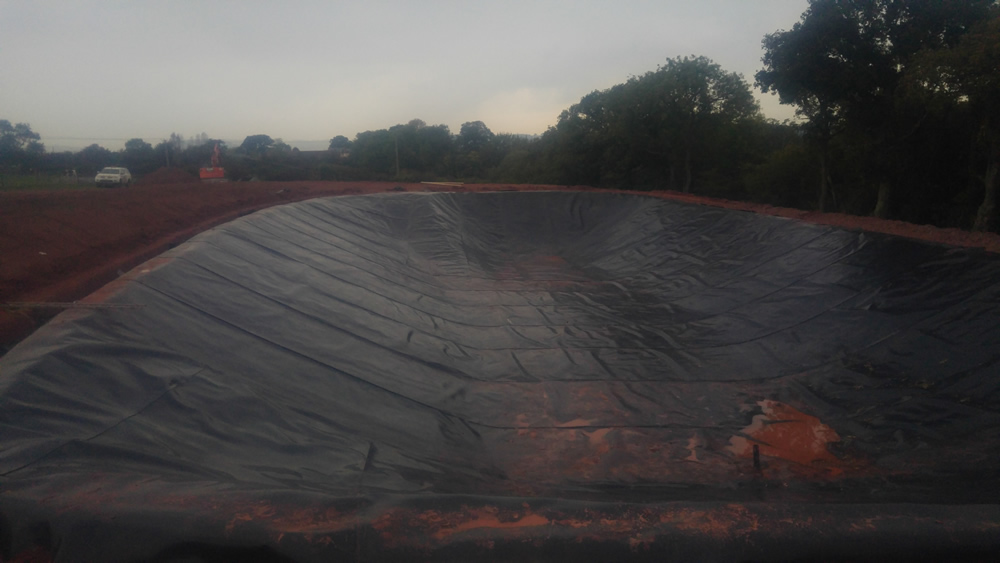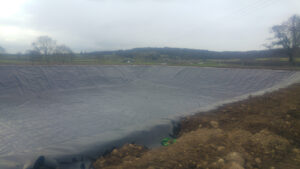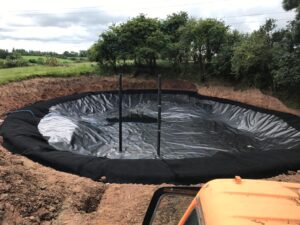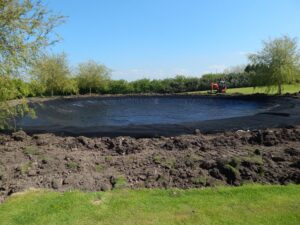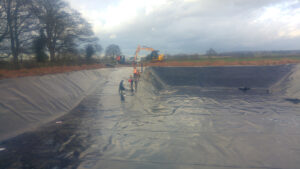Anaerobic digestion stands as a sustainable solution for managing organic waste while producing renewable energy. Within this process, the inclusion of anaerobic digestion tank liners plays a pivotal role in enhancing efficiency, containment, and environmental sustainability.
Anaerobic digestion tank liners, typically made from robust materials like High-Density Polyethylene (HDPE) or geomembranes, act as impermeable barriers within digestion tanks. Their primary function is to contain the organic waste and byproducts of the digestion process, preventing leaks and seepage into the surrounding environment.
One of the most significant environmental benefits of these liners is their role in preventing potential contamination of soil and groundwater. Without proper containment, the liquid byproducts from anaerobic digestion, known as digestate, could seep into the soil, carrying harmful pathogens and nutrients. Anaerobic digestion tank liners effectively confine the digestate, ensuring that it remains within the designated tank for proper management and utilisation.
Moreover, anaerobic digestion tank liners contribute to the reduction of greenhouse gas emissions. The controlled containment of organic waste within the digestion tanks allows for the capture and utilisation of biogas, a mixture of methane and carbon dioxide produced during the digestion process. By capturing and harnessing biogas for energy production, these liners facilitate the generation of renewable energy while mitigating the release of methane, a potent greenhouse gas, into the atmosphere.
Additionally, the utilisation of anaerobic digestion tank liners promotes efficient nutrient management. The digestate captured within these liners retains its nutrient-rich properties, making it a valuable organic fertiliser. Proper containment ensures that the nutrient content remains intact, allowing for the responsible application of digestate as a natural and sustainable soil amendment in agriculture, reducing the need for chemical fertilisers.
The impermeability and durability of these liners also contribute to their longevity and effectiveness in containing waste. Their resistance to chemical corrosion and degradation ensures that the containment system remains intact, minimising the risk of leaks or environmental pollution over time.
Furthermore, the use of anaerobic digestion tank liners aligns with circular economy principles by promoting resource recovery and waste-to-energy initiatives. By harnessing biogas for energy production and repurposing digestate as a valuable fertiliser, these liners facilitate the conversion of organic waste into renewable resources, contributing to a more sustainable and circular approach to waste management.
Regular maintenance and inspections are essential to ensure the continued effectiveness of anaerobic digestion tank liners. Monitoring for any signs of wear, tears, or damage and promptly addressing these issues through repairs or replacements is crucial to prevent potential environmental risks. In conclusion, anaerobic digestion tank liners offer a range of environmental benefits, from preventing pollution and greenhouse gas emissions to promoting resource recovery and sustainable nutrient management. Their impermeability, durability, and contribution to renewable energy generation make them integral components in the quest for eco-friendly and efficient waste management solutions within anaerobic digestion systems.
To find out more about our products and services and how we can help you, please contact us using the below –
Tel: 01695 228626
Email: enquiries@enviroseal.co.uk

